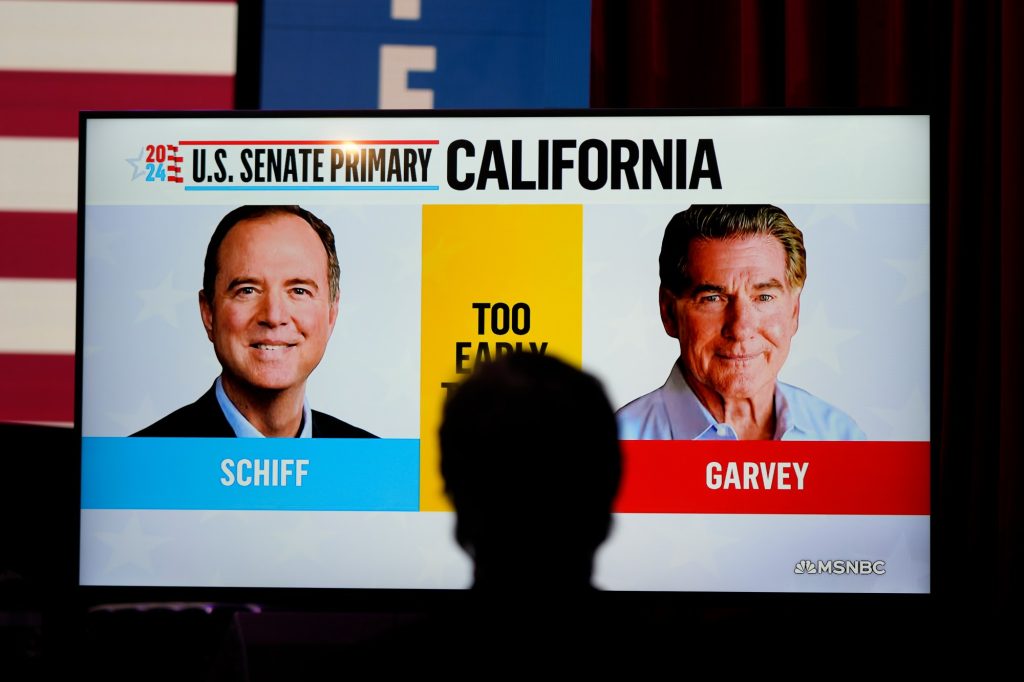By Michael R. Blood, Associated Press
LOS ANGELES (AP) — Former baseball star Steve Garvey, who is a Republican, and Democratic Rep. Adam Schiff will compete in November for the U.S. Senate seat that was held by the late Dianne Feinstein for a long time.
This is a rare chance for the GOP to compete in a significant statewide race in this Democratic stronghold.
The matchup also means that California will not have a female Senator for the first time in over thirty years.
Garvey celebrated with cheering supporters at a hotel in Palm Desert, his hometown, where he cautioned Schiff not to underestimate him despite the state’s Democratic lean. He said he would run a campaign that would appeal across party lines, focusing on inflation, the state’s unchecked homeless crisis, and rising crime rates in cities.
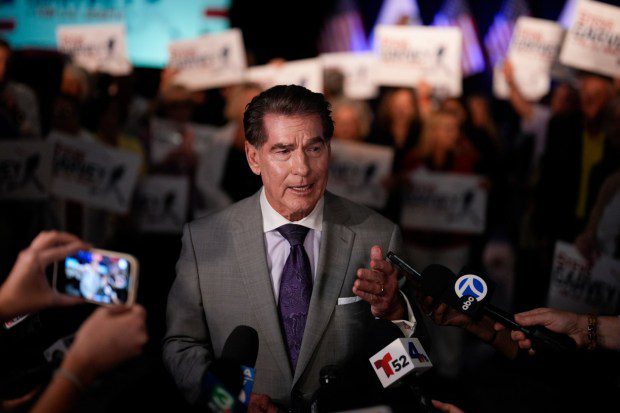
“They say in the general election that we’re going to strike out,” said Garvey. “Know this: It ain’t over ‘til it’s over.”
Schiff’s victory party was disrupted by loud protesters who shouted “Free Palestine” and “Cease-fire now,” making it difficult for the congressman to speak over them as they continued yelling. Schiff took several breaks and he seemed to rush his remarks.
Schiff, who has been vocal in his support of Israel’s right to defend itself, changed course on Tuesday and supported the Biden administration’s call for a Gaza cease-fire as part of a broader agreement that would include the release of hostages. “My position is the same as the administration,” Schiff said. The chaotic scene served as a reminder that even in a strongly Democratic state, he will have to carefully navigate the ongoing Israel-Hamas war.
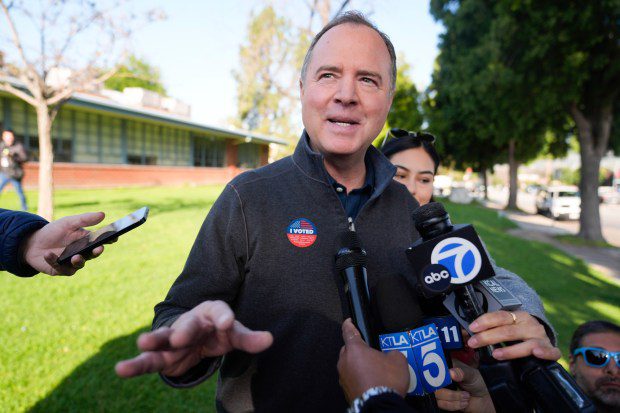
Garvey, a former baseball MVP who played for the Los Angeles Dodgers and San Diego Padres, was one of the top two vote-getters in Tuesday’s election along with Schiff.
California includes all candidates, no matter their party, on the same primary ballot and the top two vote-getters advance to the general election. This means that Republicans are sometimes excluded from high-profile statewide races due to the strong hold Democrats have on the state. The GOP has failed to advance a candidate to the general election in two of California’s last three U.S. Senate races.
However, Democrats are expected to easily retain the Senate seat in November, which is a relief for the party as it aims to defend a narrow majority. A Republican has not won a Senate race in California since 1988.
Nonetheless, the campaign signifies a new era in California politics, which was long dominated by Feinstein and a few other veteran politicians.
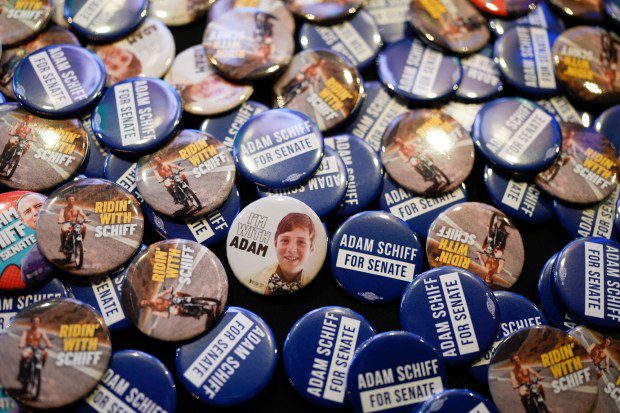
Garvey and Schiff also moved forward to the November election in the competition to fill the rest of Feinstein’s term, after the general election. Democratic Gov. Gavin Newsom picked Laphonza Butler, a long-serving Democratic organizer, to complete Feinstein’s term, and Butler chose not to compete for the seat. The winner of the November election would serve a shortened term until early January, when the full, six-year term would start.
The contest is California’s initial open U.S. Senate battle since 2016. Even before Feinstein declared in early 2023 she would not run for reelection, many of the state’s ambitious Democrats were eagerly waiting for their chance at the sought-after seat.
Garvey’s candidacy, supported by recognition among older voters especially, added an unexpected turn to the competition. The relationship between Schiff and U.S. Rep. Katie Porter became increasingly strained in the last weeks of the campaign as they both competed for a spot in the general election.
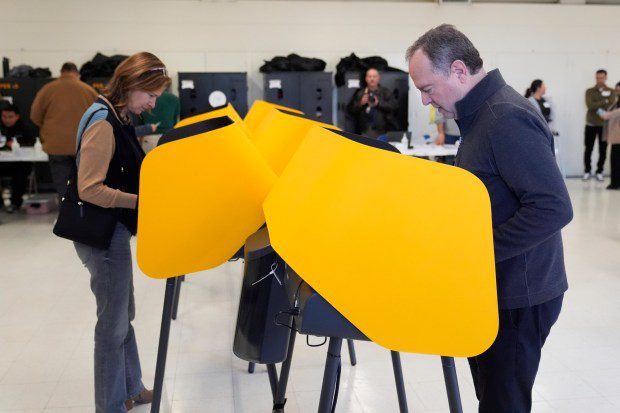
The first-time candidate Garvey secured his place on the fall ballot by portraying himself as an outsider running against entrenched Washington insiders whom he blamed for increasing grocery and gas prices, unaffordable housing costs, and an uncontrolled homeless crisis in cities.
He owes a debt of gratitude to Schiff and supportive super PACs, which ran millions of dollars in advertising highlighting Garvey’s conservative credentials, indirectly boosting his visibility among Republican and right-leaning voters.
He enters the fall campaign with low odds to claim the seat.
The state Republican Party has been in a long decline in heavily Democratic California, where a GOP candidate hasn’t won a U.S. Senate race since 1988 and registered Democrats outnumber Republican voters by a significant 2-to-1 margin. Republicans didn’t even have a candidate on the general election ballot in the 2016 and 2018 Senate races.
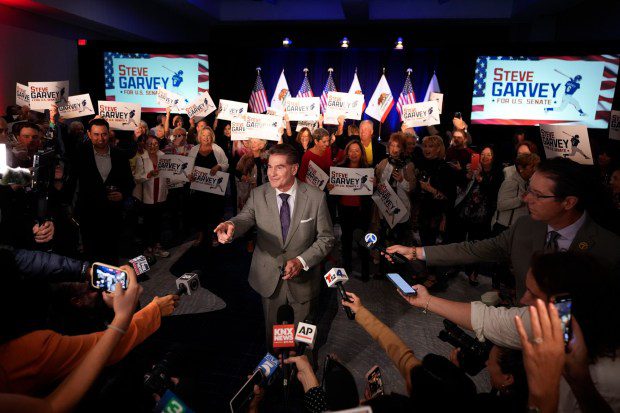
Garvey is aiming to follow a path paved by other famous athletes-turned-politicians that includes former California Gov. Arnold Schwarzenegger, a one-time bodybuilder and actor who became the last Republican to hold the state’s top job, Utah Rep. Burgess Owens, a former NFL player, and former professional basketball great Bill Bradley, who became a long-serving U.S. senator in New Jersey.
He refers to himself as a “conservative moderate” and argues he should not be categorized as conventional labels, such as former President Donald Trump’s Make America Great Again political movement.
Garvey has twice voted for Trump, who lost California in landslides but remains popular among GOP voters, but he has said he hasn’t made up his mind about this year’s presidential contest. He personally opposes abortion rights but does not support a nationwide abortion ban and will “always uphold the voice of the people,” alluding to the state’s longstanding tilt in favor of abortion rights.
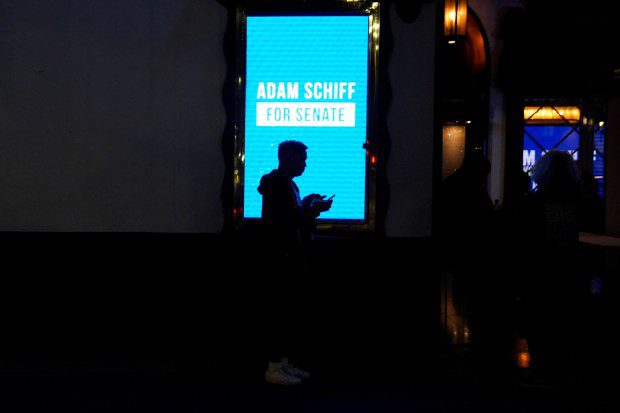
He also had to overcome the reappearance of sordid details about his personal life, including having two children with women he was not married to, which had undermined the wholesome public image he portrayed during his time with the Dodgers.
Associated Press writer Sophie Austin in Sacramento, California, contributed to this report.





